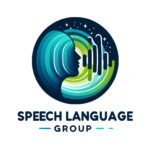Articles by altman
Thesis Defense of Thibault Bañeras-Roux – 17/01/2025
Title : Analysis and understanding of the evaluation of automatic speechrecognition systems: towards metrics integrating human perception. Date: Friday January 17 at 2:00 pm Place : Amphithéâtre du bâtiment 34, LS2N, Campus Lombarderie, 2 chemin de laHoussinière 44000 Nantes. The defense will be presented in French. Abstract : Today, word error rate remains the most widely used metric forevaluating automatic speech recognition (ASR) systems. However, thismetric has limitations in terms of correlation with human perception andfocuses only on spelling preservation. In this thesis, we proposealternative metrics that can evaluate spelling, but also grammar,semantics or phonetics. To analyze the ability of these metrics to reflect transcript qualityfrom the user’s point of view, we built up a dataset named HATS,annotated by 143 French-speaking subjects. Each annotator examined 50triplets, made up of a manual reference transcription and two hypothesesfrom different ASR systems, to determine which hypothesis was, in theiropinion, the most faithful. By calculating the number of times a metric agrees with the annotators’choices, we obtain a measure of its correlation with human perception.This corpus can thus be used to rank different metrics according to thejudgment of a human reader. Our results show that SemDist, a metricbased on BERT’s semantic representations for comparing Plus d'infos
PhD thesis defense of Arthur Amalvy – 12/09/2024
Thesis title: Natural Language Processing for the Representation of Narrative Texts through Character Networks Date: 12/09/2024 – 9 AM Place: CERI’s Ada Lovelace amphitheater. Abstract: A character network represents characters as vertices in a graph, and their relationships as edges between them. In the case of literary works, they model a whole narrative using a single mathematical object. Depending on the needs, their edges can represent different types of interactions between characters: co-occurrence, conversation, direct action… Additionally, the temporal changes in the relationships between characters can be modeled with dynamic networks. Thanks to this flexibility, character networks have been used to tackle a number of tasks, such as literary genre classification, story segmentation, recommendation or summarization. Manually extracting these networks is costly, which is why many researchers interested in automating the process. This, in turn, requires solving different Natural Language Processing (NLP) tasks such as Named Entity Recognition (NER), coreference resolution or speaker attribution. In this thesis, we present contributions to this automatic extraction process in the case of novels, as well as to character network applications. Inspired by the 2019 survey of Labatut and Bost that summarizes existing extraction efforts in a generic extraction framework, we propose Renard, a Plus d'infos
PhD defense of Willie KOUAM – 03/12/2024
Title: Network Centrality Game for Cyber Deception against Network Epidemic Propagation Date: Tuesday, December 3, 2024 – 3 pm Place: thesis room (salle des thèses) at the Hannah Arendt campus. Abstract: The rise in data breaches and service disruptions increasingly threatens internal security, with potentially devastating consequences for individuals and organizations. As a result, users of information and communication technologies must adopt tools that are both effective and efficient in combating the spread of malware. The term “users” encompasses a wide range of actors, including individuals, businesses, governmental and non-governmental organizations, and states, in short anyone who communicates through modern technologies. Among the most pressing threats they face are lateral movement and widespread epidemic propagation through the covert recruitment of unsuspecting users into botnets, the cyber-terrorist armies capable of inflicting significant damage, such as crippling businesses whose services are used by the same users. In these scenarios, as in many others, users, deceived by skilled experts known as attackers, unknowingly contribute to cyberattacks, with deception serving as the primary attack vector. Cybercriminals, unlike defenders, frequently violate privacy rules, allowing them to be better informed, sometimes unilaterally, about the level of compromise of each user. In their efforts to control multiple Plus d'infos
Cornet seminar – Felipe Albuquerque – 11/07/2024
Title: The Capacitated p-Location Problem with Territorial Coverage Constraints Date: 11/07/2024 – 11:35 AM Room: S6 Résumé : In spatial planning, the efficient location and allocation of services pose complex challenges across diverse contexts. Our research focuses on the capacitated p-location problem, which aims to select p facilities from a set of potential locations to minimize allocation costs between facilities and consumers with specific demand weights, while respecting capacity constraints. To better model real-world applications, we extended this problem by introducing territorial coverage constraints. We examined the adapted formulation of this expanded problem and developed a heuristic approach to handle larger instances effectively. A case study in France’s PACA (Provence-Alpes-Côte d’Azur) region illustrates the impact of these coverage constraints.
SLG seminar – Ana Montalvo – 11/06/2024
Title: Exploring Short-Duration Spoken Language Recognition: Insights from CENATAV Date: 11/06/2024 – 11AM Room: S4 Abstract : This presentation will introduce the Advanced Technologies Application Center (CENATAV), outlining its core mission and research areas, with a focus on the work of its Voice Processing Group. We will discuss the challenges of conducting research with limited access to high-performance computing resources and large datasets, emphasizing our recent work on spoken language recognition in very short-duration audio signals. Language: English
PhD Defense of Timothée Dhaussy – 10/21/2024
Date: 21th of october 2024 at 2PM Place: Thesis room, at the Hannah Arendt campus of Avignon Université. The videoconference link is the following: https://bbb.univ-avignon.fr/rooms/vtj-xje-xex-gyw/join . The jury will be composed of: Dr Aurélie Clodic, LAAS-CNRS, RapporteurePr Julien Pinquier, Université de Toulouse, IRIT, RapporteurPr Laurence Devillers, Sorbonne Université, LISN-CNRS, ExaminatricePr Olivier Alata, Université Jean Monnet, Laboratoire Hubert Curien, ExaminateurPr Fabrice Lefèvre, Avignon Université, LIA, Directeur de thèseDr Bassam Jabaian, Avignon Université, LIA, Co-encadrant Title: Proactive multimodal human-robot interaction in a hospital In this thesis, we focus on creating a proactive multimodal system for the social robot Pepper, designed for a hospital waiting room. To achieve this, we developed a cognitive human-robot interaction architecture, based on a continuous loop of perceptions, representation, and decision-making. The flow of perceptions is divided into two steps: first, retrieving data from the robot’s sensors, and then enriching it through refining modules. A speaker diarization refining module, based on a Bayesian model of fusion of audio and visual perceptions through spatial coincidence, was integrated. To enable proactive action, we designed a model analyzing the users’ availability for interaction in a waiting room. The refined perceptions are then organized and aligned to create a constantly updated representation of Plus d'infos
PhD defense of Lucas Druart – 24/10/2024
Date: Jeudi 24 octobre à 15h Lieu: salle des thèses sur le campus Hannah Arendt. Vous pouvez également y assister à distance si vous le souhaitez grâce au lien suivant : https://v-au.univ-avignon.fr/live/bbb-soutenance-these-l-druart-24-octobre-2024/. Title : Towards Contextual and Structured Spoken Task-Oriented Dialogue Understanding Abstract : Accurately understanding users’ requests is key to provide smooth interactions with spoken Task-Oriented Dialogue (TOD) systems. Traditionally such systems adopt cascade approaches which combine an Automatic Speech Recognition (ASR) component with a Natural Language Understanding (NLU) one. Yet, those systems still have trouble to accurately map complex user’s request with their internal representation. Recent work highlights potential directions to improve those systems. On the one hand, end-to-end approaches have successfully enhanced Spoken Language Understanding (SLU) system’s performance. Indeed, they provide more robust and accurate predictions by leveraging joint optimization and paralinguistic information. On the other hand, textual datasets propose fine-grained semantic representations. Such representations seem more adequate to represent user’s complex requests. This thesis explores both directions towards contextual and structured spoken task-oriented dialogue understanding. We first conduct a preliminary study dedicated to getting the grips of SLU in the context of TOD. We designed a cascade approach to perform spoken Dialogue State Tracking (DST) on MultiWOZ. Our approach ranked first in Plus d'infos
Cornet seminar – Léo Joubert – 24/09/2024
Le prochain séminaire de l’équipe CORNET se tiendra le 24 septembre à 11h35 en salle C057 (ancienne BU). Nous aurons le plaisir d’accueillir Léo Joubert, Maître de Conférences du laboratoire Dysolab à l’Université de Rouen-Normandie, qui nous présentera : _________________________________________________________ De quoi est faite Wikipédia ? Quelques pistes pour une analyse de sa régulation au prisme des effacements réciproques. Résumé : Vieille de 20 ans et aujourd’hui largement utilisée, l’encyclopédie Wikipédia continue à interroger par la manière dont elle est produite. Une communauté de « wikipédien.nes » volontaires remplace les habituels expert.es mobilisés par les comités de rédaction. Alors qu’au fil du temps, des règles encadrant la rédaction acquéraient leur légitimité, le volume du corpus augmentait en même temps que son hétérogénéité. Ce séminaire vise à catégoriser cette diversité, dans le but de saisir comment Wikipédia parvient à faire cohabiter différents modes de régulation ajustée à la pluralité des contextes. Nous mobiliserons pour cela une base de données compilant l’ensemble des ajouts et effacements sur l’ensemble des pages wikipédiennes. À partir d’une comparaison de plusieurs sous-corpus, l’analyse statistique constituera le point de départ d’une sociologie de la régulation des communs numériques de masse au regard de la pluralité des formes de coécriture. _________________________________________________________
PhD defense of Gaelle Laperrière – 09/09/2024
Date: 9th of Septembre 2024 Time : 3PM Place: Ada Lovelace CERI’s amphitheater, at the Jean-Henri Fabre campus of Avignon Université. The jury will be composed of: Alexandre Allauzen, PR at Université Paris Dauphine-PSL, LAMSADE – Rapporteur Benoit Favre, PR at Aix-Marseille Université, LIS – Rapporteur Marco Dinarelli, CR at CNRS, LIG – Examiner Nathalie Camelin, MCF at Le Mans Université, LIUM – Examiner Philippe Langlais, PR at Université de Montréal, DIRO, RALI – Examiner Fabrice Lefèvre, PR at Avignon Université, LIA – Examiner Yannick Estève, PR at Avignon Université, LIA – Thesis director Sahar Ghannay, MCF at Université Paris-Saclay, LISN, CNRS – Thesis co-supervisor Bassam Jabaian, MCF at Avignon Université, LIA – Thesis co-supervisor Title: Spoken Language Understanding in a multilingual context This thesis falls within the scope of Deep Learning applied to Spoken Language Understanding. Its primary objective is to leverage existing data of large resourced annotated languages for speech semantics to develop effective understanding systems in low resourced languages. In recent years, significant advances were made in the field of automatic speech translation through new approaches that converge audio and textual modalities, the latter benefiting from vast amounts of data. By visualizing spoken language understanding as a translation task from a natural Plus d'infos



